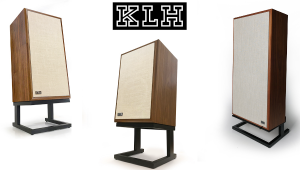The Music Is Out There: David Duchovny Shares His Every Third Thought

“You have to give up on the ego part of it and go, ‘How do I want the mix to sound? Where do I want the vocals to go?’” admits Duchovny, shown above playing a pristine new acoustic guitar made to the exact specifications of a sunburst 1937 Martin 000-18. “Yeah, I want you to hear the lyrics, but I also want these songs to be sonic equations, more than just platforms for the words.”
Duchovny’s relatively egoless expressions are on full display on his second album, Every Third Thought (King Baby/GMG), which is available now digitally. You can check out songs like the acoustically seductive “Spiral” and the jam-driven lament of “The Last First Time” right here: davidduchovnymusic.com. Duchovny also confirms physical copies of the album are indeed in the works — “I’ll always be a vinyl guy” — and you can preorder the double vinyl and/or CD version via PledgeMusic.
Before he headed down under to tackle some tour dates in Australia and New Zealand, I got on the line with Duchovny, 57, to discuss the importance of vocal enunciation, leaving what he feels sounds “real” in final mixes, and why you’ll never hear his singing voice on The X-Files — even though you’ve heard one of his songs appear on the show. The music is out there, after all. . .
Mike Mettler: We already know what you sound like as a person who speaks for a living, and the character of your singing voice also reflects who you are. Did you give any thought of making your singing sound differently, or is it just the natural way you do it?
David Duchovny: I really want to sound differently than how I sound, but this is the voice I have, you know? This is where I found myself at my age, just starting to sing. It’s all been a process of complete discovery. It’s not something I’ve done my entire life [his first album, Hell or Highwater, was released in 2015], so the guy I’ve worked with [as his vocal coach] approaches it as I’m “speaking” in pitch. That’s kind of the baseline of where I’m at.
As I get better at it and more confident, I sing a little harder, and I sing a little higher. And the songs I write might be in my lower range as I’m singing more and pushing myself more. I’m probably pushing my voice as well. I think it’ll probably change as I get better. At least that’s my hope.
Mettler: What I find for you as an actor is you have a certain style of enunciation, in that you have to speak words written for you by others that need to come across as totally clear. As music listeners, we’re often struggling to hear artists get across their concepts and lyrics, so I wonder if that’s a subconscious thing for you in making sure we totally hear your lyrical enunciation — even something as basic as the “t” sound at the end of the phrase, “Every third thought.”
Duchovny: I was about to say that! When I was listening back to my recordings, I thought, “Damn — I finish my t’s a lot!”
Mettler: You sing all the way through that “t” at the end of “thought” there.
Duchovny: Yeah — my mother would be proud! (both chuckle) I probably enunciate better as a singer than I do as a speaker, and I’m not sure why that is. I mean, I definitely do want the lyrics to be heard.
Mettler: Well, it is your writing, after all, so maybe that becomes a little more precious to you, in wanting to get those words across. I’m also curious about your choice as the titular artist as to where you fit into the mix. Your voice is very often front and center, but we also get some great electric guitar lines from Pat McCusker. Man, he’s got some great tone.
Duchovny: Yes, he does. Well, I think it’s just been a learning process that way. It’s not false humility when I say, “Oh my God, bring my voice back.” That’s just me going, “I want to hear the music.”
But I’ll also say, in my life as a rock & roll fan, there’s just a push-pull — and let’s just use The Beatles and The [Rolling] Stones as cases in point — where you’re always going to hear the Beatles lyrics, and you’re not going to have to strain. There’s something kind of mystical about Stones lyrics, which may not be nearly as good as Beatles lyrics — but that’s because they get swallowed up a lot, and you have to work hard to hear them. You mis-hear them a lot, and sometimes you make up lyrics that are actually better than they are.
Different songs demand a different kind of feel that way. I mean, I don’t come down “yay” on one side, and “nay” on the other. They’re just different options of getting the words across.
Mettler: As a seasoned listener, would you consider vinyl as the “best” format for listening? You do have double-vinyl coming for this new album, which is fantastic, as far as I’m concerned.
Duchovny: I grew up with vinyl, and I’ll always be a vinyl guy. But, to be honest with you, I think the days of the album are dead, really. Just to have the thing in your hand now as an artifact is really all it is. Ninety-eight percent of the people are going to consume it out of the air.
Mettler: That may be true. Your kids are teenagers now, so are you finding them getting into vinyl at all? It is experiencing a generational comeback, and for kids are discovering it too.
Duchovny: I think some of them will, but ultimately, the sheer ease of having everything in your hand is going to win out. Unfortunately, I have to say.
But as a lyricist, I really don’t like that, because you really need X-ray vision to be able to read lyrics off of a CD booklet. To me, the whole experience growing up was, I got this vinyl, I got this jacket sleeve in my hand, I’m gonna hear the lyrics, and sit here and read along to the song. That doesn’t really happen anymore.
Mettler: It is a ritual, which is why I still do what I call “appointment listening” on most Friday nights. The phone is down, and I’m not watching or reading anything else. Do you have what I’ll call “the vinyl talisman,” the one album that you’ll still hold to be sacred?
Duchovny: (chuckles) Just one particular vinyl album? Well, I’d say all of the ones I bought growing up. See, when I was first buying albums, it was all 3 dollars and 99 cents — and that was a lot of money to me at the ages of 12, 13, and 14. I did not come up with four dollars very often. Let’s say I bought an album every three months or so, and I really had to put my thought into it.
And there were no websites where I could hear entire albums. When I went to buy [1972’s] Honky Chateau by Elton John, I’d only heard “Honky Cat,” so it was a scary thing. I was putting down $3.99 for one song I knew I liked, but what was the rest of this album going to be like? I didn’t know.
Mettler: I would first buy the 45s myself, which I think were 99 cents at the time.
Duchovny: I did too. They were 99 cents, yeah.
Mettler: I also loved B-sides. If I liked the first single, I’d buy the second one, and I figured if I liked all four songs by that artist, I’m going to like all ten on an album, so I’d take the next step and buy the full album after that.
Duchovny: Yeah, but then you were overpaying!
Mettler: Yeah, don’t remind me, David! (both laugh) I was already a predisposed overpayer at that point.
Duchovny: Right, right! (chuckles) I always tried to buy the live albums, because they were kind of like greatest hits albums. Some weren’t as good, but Frampton Comes Alive (1976) was pretty big for me. And Yessongs (1973).
Mettler: Oh, the triple-live one, with the Roger Dean foldout cover?
Duchovny: Yeah, the triple, with all the great Yes songs done live. I was a big fan of Yes. Obviously, there’s no influence on my music, because I’m just not good enough to play like those guys. But I loved Yes when I was in high school — and Steve Howe is an amazing guitar player.
Mettler: I used to play guitar, but my one claim to fame is I can still play the intro to “Roundabout.” If anybody asks you to play, it’s like, “Yeah, I can play that,” and then I’m done.
Duchovny: (laughs heartily) Hopefully, you won’t have to go beyond that, and they’ll just go, “Oh yeah, that guy — he can play.”
Mettler: Yeah, that’s good enough. But you’re now becoming the acoustic guitar expert yourself. Do you feel more comfortable playing it now?
Duchovny: Me? No no no. I mean, I want to be a great player, but I don’t know if I’ll ever get there. I just wanted to get good enough to play my chords, and to write songs.
Mettler: You are a very chordal player, that’s true. You don’t feel compelled to take any acoustic solos at all?
Duchovny: If I get to the point where I can play them, I’d love to, because it’s really like discovering a melodic line too, so why not? But I don’t have the facility at this point.
Mettler: I do like hearing those acoustic textures stand out in the mix, even in the songs that start out more electrically. “Spiral” is a good example of that, where we can also hear a bit of the finger movement on the strings. It’s very real.
Duchovny: I love to hear that. There’s a moment in “Mo’,” after the third verse — it goes two verses, chorus, third verse, chorus — where Pat kept his fingers on the strings as he went all the way up the neck. They were going to take that sound of him moving up the neck out, but I just loved it, and that’s the kind of stuff I like to keep in. I also tell them, “Try to keep in as much of my breathing as you can.” I love to hear the singer breathing. That’s good, real stuff.
Mettler: I totally agree. If you make it too insular, it doesn’t sound real. Even with a singer like Adele, where you can hear her take a super-long breath before the chorus in “Skyfall.” If you took that out, some of the song’s impact would be lost, even with a singer as good as she is. You don’t want to lose that.
Duchovny: It’s human. I can’t say enough about it.
Mettler: Especially coming from someone who has to deal with so many things that are inhuman on another project you work on, whose name seems to escape me at the moment. I can’t seem to remember it, for some reason. . .
Duchovny: Neither can I. I don’t mean to cut you off right when you get to The X-Files (huge laugh), but I’ll let you ask one X-Files question if you have one, so go ahead.
Mettler: I do have just one. Recently, a song of yours got on the show [as done by Sore Points, a Vancouver punk band seen playing in a club at the beginning of the Season 11, Episode 3, “Plus One,” which aired January 17, 2018]. [X-Files creator] Chris Carter decided to use it, but he didn’t go with the version you sang. Why not?
Duchovny: Yeah, we had a punk cover of “Unsaid Undone” [a song from 2015’s Hell or Highwater], but I understand it. This will be a good full circle thing, because it gets back to me sounding the way I speak when I sing. I think to have Mulder’s singing voice over the show would be very weird, and distracting.
Mettler: I can see that. If Chris came to you and said, “OK, David, for the very last song on the very last show, I’m going to let you choose it,” what would it be? What would be the very last song that plays over the absolute final credits of the show?
Duchovny: (chuckles) Oh, wow. Whewww! That’s such a hard question, dammit!
Mettler: I know. I’m putting you to work.
Duchovny: I was just wondering if we had used “High Flying Bird” in Californication, because I’m always trying to use Elton John. [“High Flying Bird” is on 1973’s Don’t Shoot Me I’m Only the Piano Player.]
Or maybe “Someone Saved My Life Tonight” [from 1975’s Captain Fantastic and the Brown Dirt Cowboy]. I don’t know, I don’t know.
Mettler: It makes you come full circle in your life, so well done, David. (Duchovny chuckles) OK, one last thing before you go, as I’d like to switch it over to Twin Peaks to wrap it up.
Duchovny: Sure. Gladly.
Mettler: When are you going to do a cover of the song “Denis”/“Denise”? When do we get to hear you do that? [This is a reference to Dennis/Denise Bryson, the cross-dressing and ultimately revealed to be transgender DEA/FBI agent Mulder played on Twin Peaks.]
Duchovny: (laughs) I don’t know that song! What is it?
Mettler: Oh, you can look it up. Blondie covered it in the ’70s, where they changed it to “Denis” to be the male version [in 1978], and the original female version is “Denise,” an early-’60s doo-wop version by Randy & The Rainbows [a Top 10 hit in 1963].
Duchovny: OK, I’ll check it out — because I may have to cover it both ways, obviously.
- Log in or register to post comments



























































